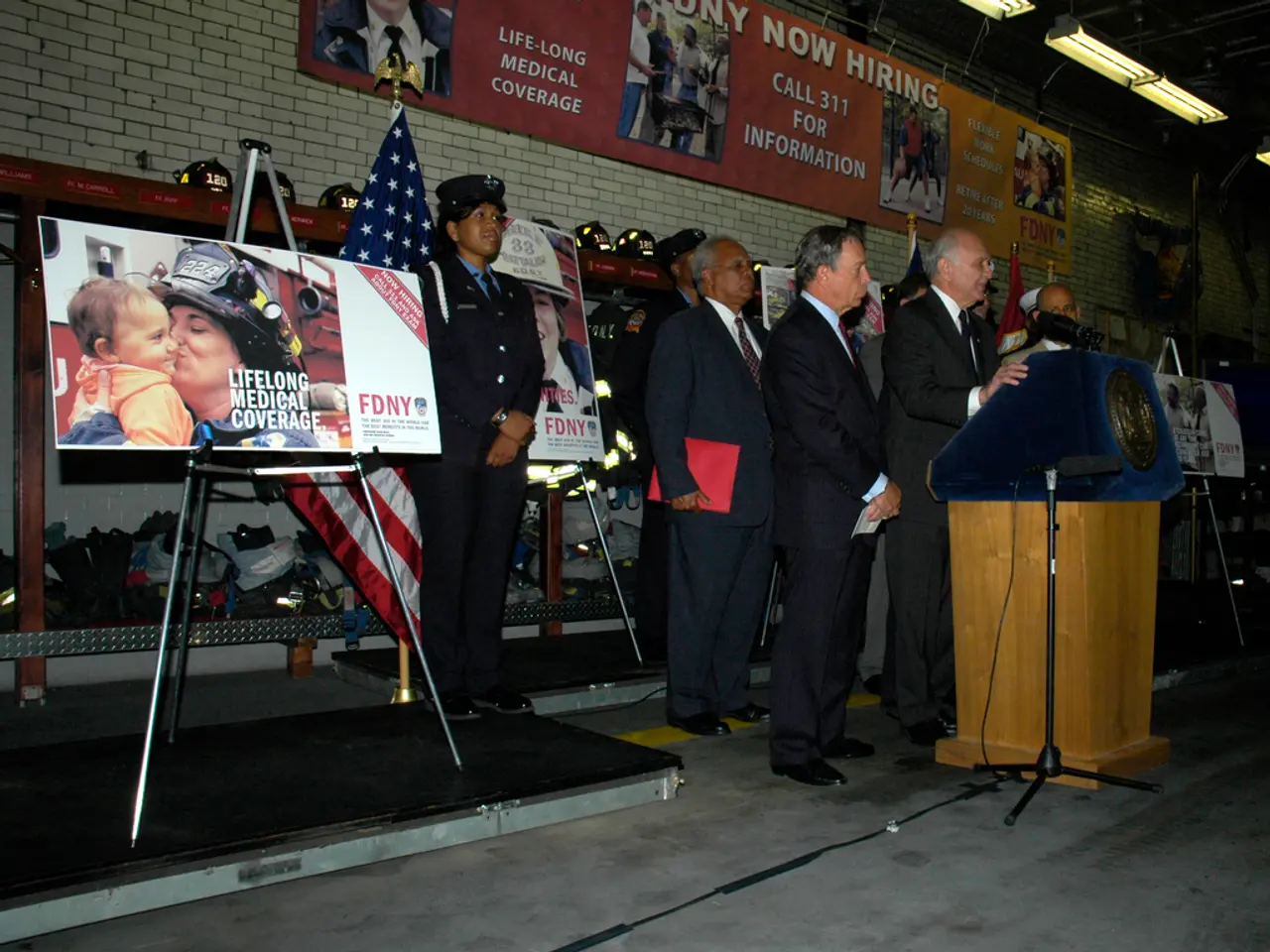Libya conducting municipal elections, a rare occurrence
In the heart of North Africa, Libya prepares for its municipal elections on Saturday, a significant event in the country's democratic journey. These elections, the first since 2013, are a critical test of Libya's commitment to democratic governance, amidst ongoing political divisions.
Initially, elections were planned in 63 municipalities nationwide. However, 11 constituencies in the east and south have been suspended due to irregularities, administrative issues, and pressure from local authorities. Key cities such as Benghazi, Sirte, and Tobruk have rejected participation in these elections, underscoring the persistent divisions between the UN-recognized government based in Tripoli and the rival eastern administration.
The elections are seen as an opportunity for Libyans to have a say in their day-to-day affairs. Esraa Abdelmonem, a 36-year-old mother of three, emphasizes the importance of voting without fear or pressure. She believes these elections will allow people to choose their local representatives and influence their community's future.
The United Nations Support Mission in Libya (UNSMIL) considers these elections essential for democratic governance. Khaled al-Montasser, a Tripoli-based international relations professor, views the vote as decisive, testing whether Libya's factions are ready to accept representatives chosen at the ballot box. The UK government and UN Security Council have also highlighted that free, fair, and transparent elections are critical for Libya’s ongoing political transition.
The path to democracy in Libya has been fraught with challenges. After the overthrow of Muammar Gaddafi in 2011, Libya held its first contested vote in 2012, followed by the first municipal elections in 2013 and legislative elections in 2014. However, instability and conflict have neglected local governance issues since then.
In August 2014, an alliance of militias seized Tripoli and installed a government, forcing the newly elected parliament to relocate to the east. Since then, Libya has been split between a U.N.-recognized government in Tripoli and an eastern rival, backed by General Khalifa Haftar.
The current status of democratization in Libya is characterized by cautious progress amid ongoing political divisions. The 2025 municipal vote is a decisive step in testing whether Libya's fractured political factions are willing to support representatives chosen at the ballot box, marking a significant, though fragile, step in Libya’s democratic transition since the 2011 NATO-backed uprising that ended Gaddafi’s rule.
However, the elections have not been without incident. There have been reports of arson attacks on polling stations, and the attack on the electoral body's headquarters in Zliten sought to intimidate voters, candidates, and electoral staff. UNSMIL reported some injuries from the attack.
As Libyans head to the polls, the world watches with hope, recognizing the challenges that lie ahead but also the potential for a brighter, more democratic future for the Libyan people.
The upcoming municipal elections in Libya are garnering global attention, as they represent a critical test of the country's dedication to democratic governance amidst ongoing political divisions and war-and-conflicts. The elections, held after a seven-year gap since 2013, are significant events in Libya's tumultuous democratic journey, marked by general-news challenges and fraught with incidents such as arson attacks on polling stations.








